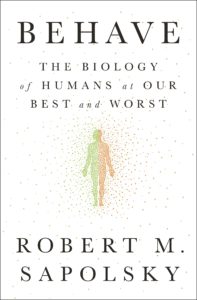 For much of last year my daily routine included sipping a drink and reading a book at a coffee shop in a big box bookstore.
For much of last year my daily routine included sipping a drink and reading a book at a coffee shop in a big box bookstore.
I went thru a lot of books that way. A few standout, and Behave was the foremost among those.
When you’ve read a lot of books, you rarely read much that is new to you, but Behave told me things I didn’t know. Some were because when I learned biology and neuroscience, a lot wasn’t known. Some I’ve caught since then (brain cells do keep growing in adulthood, which the neuroscience of my childhood said was the not the case), but some I didn’t.
Behave is a genuinely comprehensive book. Too many books these days amount to magazine articles padded with another seventy thousand words, but Behave actually requires its length, so I’m going to pull out four piece of knowledge to share, but encourage you to read the book. (I have it on my “read again” list.)
The first is about the prefrontal cortex, and there’s a good chance that you know the prefrontal cortex is the part of the cerebral cortex (the outer skin of the brain which evolved last) we use to override decisions from the lizard and monkey parts of the brains.
The problem with cerebral cortex is general is that it’s slow: the lizard and mammalian parts operate faster. For the prefrontal cortex to override a decision made by the parts of the brain that are closer, as it were to the metal (run! fight! fuck!) you need to slow down. If you act instantly, it isn’t a judgment call, it’s your reflexes and conditioning working. That might be good, it might wind you up in a fight you can’t win or having sex with someone you’re going to hate after you spend two years with them.
The prefrontal cortex doesn’t finish growing until you’re 25 or so, which is reflected in automobile actuarial tables, as it happens: younger than 25, more accidents. This doesn’t mean those younger than twenty-five have no self control, no ability override the older parts of the brain, instead younger brains use other regions, such as the ventral striatum to help the under-developed prefrontal cortex.
Still adolescent and childhood impulsiveness and difficulty with self-control is entirely real and based on brain development. It’s not that they (we) don’t want more control, especially more emotional regulation, they just don’t have it.
Anyway, if you want more control, slow down. Also, fairly standard Vipassana and Shamatha meditation will give you more control over time. A couple teachers I know have sped up their perceptions so much that they can decide whether or not react to a flinch reflex.
The first “holy shit” moment in the book, for me, was about testosterone. We have been propagandized to view testosterone as related to violence.
Nope.
Oh, it can be. But what testosterone appears to actually be related to is status seeking. If violence and bullying is what a society rewards with status, then yup, testosterone is about violence.
But if hugging and caring for people will get you more status, suddenly high-T individuals are the biggest huggers and carers around.
Rather changes the question of what society types are viable, doesn’t it? Makes nonsense of the idea that society has to be nasty because people (high status men) are nasty.
And here’s the thing, in hunter-gatherer bands (note the word bands), the high status individuals are caring, wise and slow to anger. The high status caring men also spread their genes around plenty.
Then there was the simple revelation about Oxytocin, the so-called love hormone, which is supposed to make both men and women more caring and nurturing. (Insert picture of man cradling baby if this was a magazine.)
It does. It does!
Er, but there’s a thorn on this rose. What it actually does is increase tribal behaviour. You act better towards members of your tribe, your people and worse towards others, because it reduces your empathy to outsiders. Oxytocin, one imagines, along with baby hugging, probably has a role in genocides and not that the groups and people who commit violence to outsiders tend to have strong internal cohesion. (This clearly isn’t the only factor, but it is interesting and suggests that ideas involving increasing our Oxytocin won’t work to solve our larger problems.)
Finally, something which younger readers probably know: the effects of many genes are turned on and off by the environment.
This sure isn’t what I was taught in biology. Back then it was “genes are one thing, the environment is another.”
What’s even more lovely, if like me you had to sit thru hours of listening to Lamarck being castigated as a fool for saying that developed characteristics could be passed on to offspring “hahahaha, what a fool, and those Soviets are obviously ideological cretins for believing it, hahahaha!” — well, it turns out that genes being turned on and off can be passed on. And yeah, genes involved in building muscle are among that group, so Arnold Schwarznegger’s kids, if they lift, probably put on muscle easier than you do.
As Sapolsky notes, the question “nurture or nature?” in light of this, is very close to nonsense. The answer is “both”. For a lot of things you need both the genes and the environment. Saprorsky hammers relentlessly on this, one example is a genetic predisposition to less sensitive mothering that occurs only if the mother herself had an adverse childhood; another increases violence only when drunk.
On top of all that, the effects of most genetic determinants of behavior were small, even when activated by the environment.
These four points are only a small part of what Saporsky offers. There may be a more comprehensive, up to date book (if you think so, drop it in the comments), but this one is extraordinary. It’s not a fast read, it’s packed with information, and I think it really will require a re-read to digest properly, but I can recommend it whole-heartedly if the question “why do we behave how we do?” interests you at all.
Everything I write here is free, but rent isn’t, so if you value my writing, please DONATE or SUBSCRIBE.

 If I were going to advise someone to buy just one book about how societies and economies run, this would be the one.
If I were going to advise someone to buy just one book about how societies and economies run, this would be the one. Recently, I’ve been reading a fair bit of fiction, generally a book a day, and for the last week and a bit it’s been the Brother Cadfael novels by Ellis Peters.
Recently, I’ve been reading a fair bit of fiction, generally a book a day, and for the last week and a bit it’s been the Brother Cadfael novels by Ellis Peters.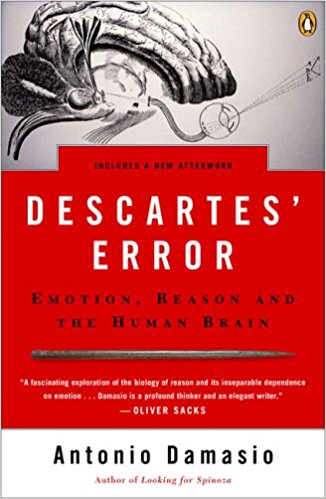 This book is a bit long in the tooth now, having been published in ’95. The role it suggests for emotion in the use of reason is, in generalities, no longer controversial. But it was a landmark book for me, when I read it, and it’s still relevant and worth reading.
This book is a bit long in the tooth now, having been published in ’95. The role it suggests for emotion in the use of reason is, in generalities, no longer controversial. But it was a landmark book for me, when I read it, and it’s still relevant and worth reading.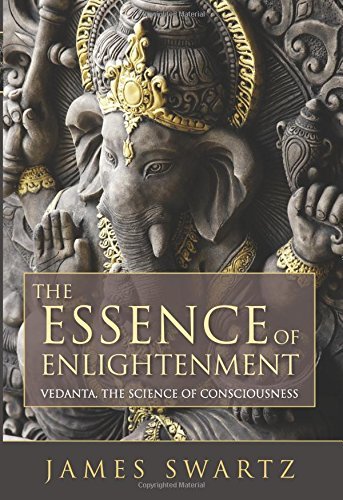 The Essence of Enlightenment, James Swartz
The Essence of Enlightenment, James Swartz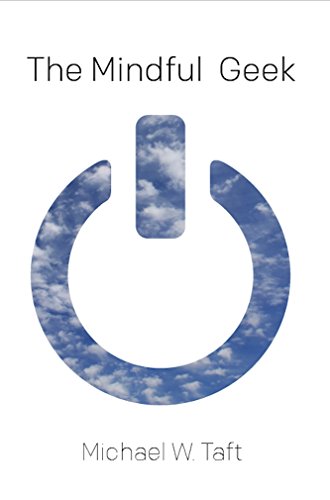 The Mindful Geek, Michael Taft
The Mindful Geek, Michael Taft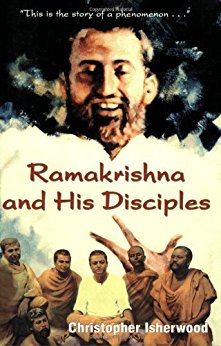 Ramakrishna and His Disciples, Christopher Isherwood
Ramakrishna and His Disciples, Christopher Isherwood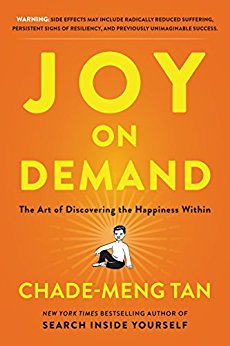 Joy On Demand, Chade-Meng Tan
Joy On Demand, Chade-Meng Tan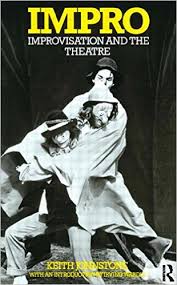 The subtitle is “Improvisation and the Theatre,” but this is a book for far more than people involved in theatre, and one of the most profound I have read.
The subtitle is “Improvisation and the Theatre,” but this is a book for far more than people involved in theatre, and one of the most profound I have read. The Spenser Novels, Robert Parker
The Spenser Novels, Robert Parker The Burke Novels, Andrew Vachss
The Burke Novels, Andrew Vachss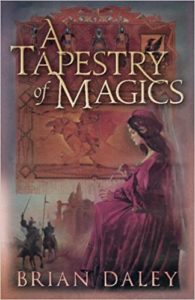 A Tapestry of Magics, Brian Daley
A Tapestry of Magics, Brian Daley The Wizard War Series, by Andrew Offut and Richard Lyon
The Wizard War Series, by Andrew Offut and Richard Lyon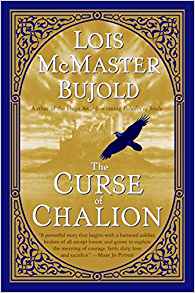 The Curse of Chalion, by Lois McMaster Bujold
The Curse of Chalion, by Lois McMaster Bujold Time of the Dark Trilogy, by Barbara Hambly
Time of the Dark Trilogy, by Barbara Hambly Mairelon the Magician, by Patricia Wrede
Mairelon the Magician, by Patricia Wrede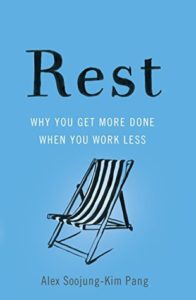 For many years, I’ve noticed something about the work schedules of writers. Most work about four hours a day, virtually none work six or more.
For many years, I’ve noticed something about the work schedules of writers. Most work about four hours a day, virtually none work six or more.